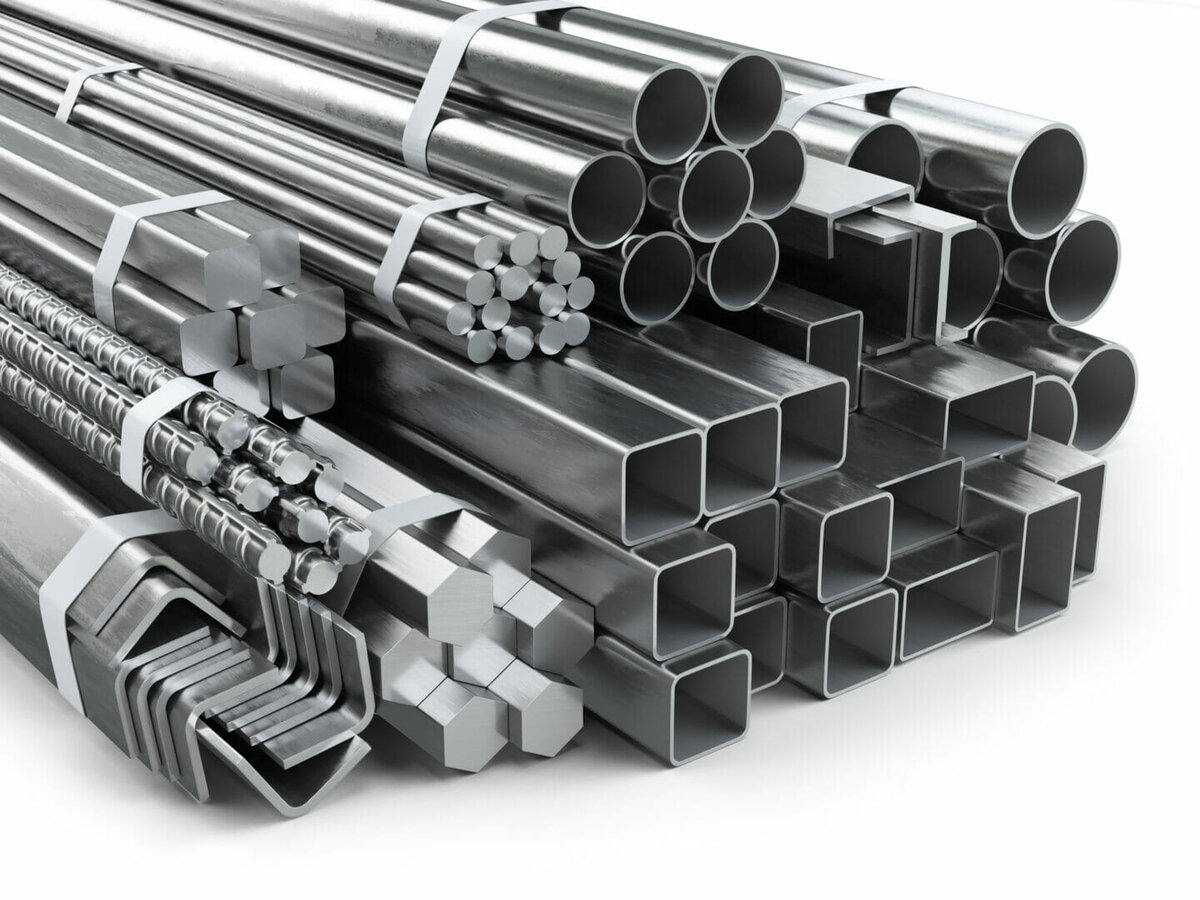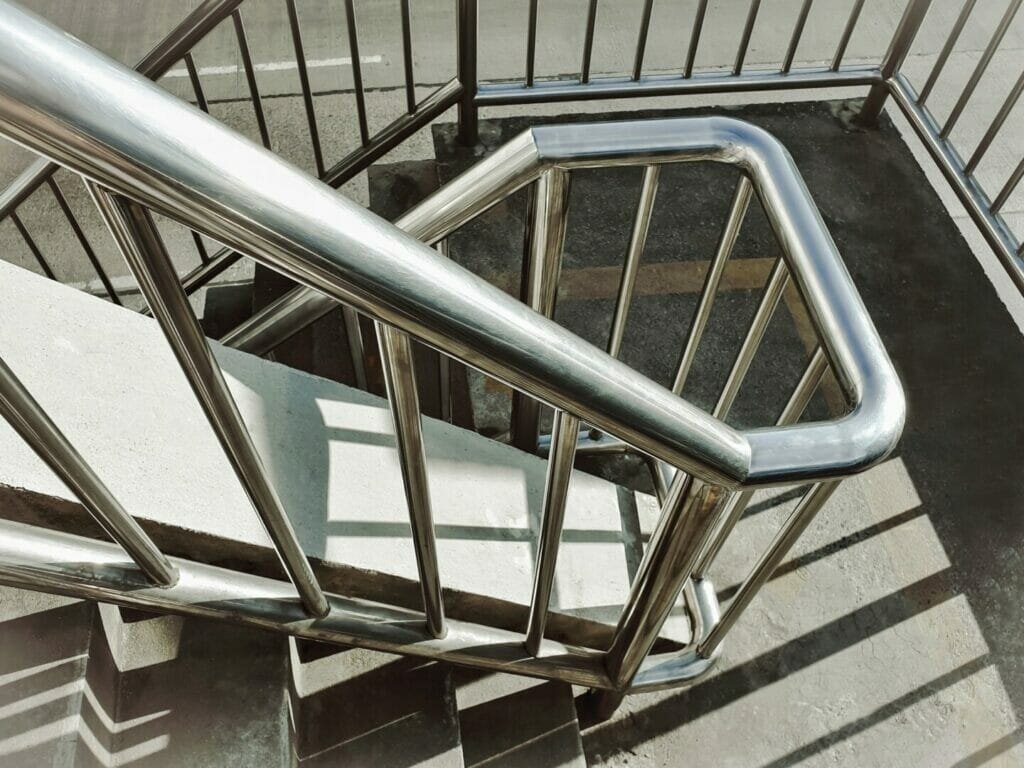
Stainless steel is a commonly used material in the construction industry. It’s used both in the interior and exterior space. Outside, you’ll see it as cladding; it’ll also don staircase handrails indoors.
As a construction professional, investor, or client, you might wonder about the importance of stainless steel in this industry. This article gives reasons as to why it’s important. However, before delving into that, it’s crucial to understand more about stainless steel.
What Is Stainless Steel?
Stainless steel is an alloy of iron and chromium. Each alloy’s percentage differs in terms of the desired grades. However, it’s advisable not to have chromium be less than 10.5%. You can include metal additives to enhance the properties of stainless steel. These additives are nickel, nitrogen, copper, silicone, and sulphur.
How Is Stainless Steel Manufactured?
Stainless steel undergoes various processes before achieving the final design. It undergoes the following:
- Melting of scrap metals and desired metal additives in a furnace. The aim is to transform them into a molten form.
- Removing carbon content. Too much carbon makes the stainless steel so hard that it’s challenging to weld when needed. There are two ways of doing this. Opt to inject argon gas mixture or oxygen into the molten mixture. If you opt for oxygen, add the gas while heating it to create a vacuum. The vacuum will remove the Carbon content.
- Tuning the molten mixture to achieve desired characteristics. You’ll do this by homogenizing the mixture.
- Casting the molten mixture into a solid state. You’ll need the pods in which you’ll pour in your mixture. You can cast to make bars, slabs, rods, and tubes, among other options.
- Cutting to the desired final product. With casting, the stainless steel will harden into the desired product. You’ll then cut the product according to customer orders.


Why Stainless Steel Is Important
That said, here’s why stainless steel is crucial in the construction industry:
1. It’s Strong
The strength of stainless steel refers to its ability to withstand pressure without plastic deformation or failure. Regarding stainless steel, look at yield and tensile strength.
What is yield strength? It’s the maximum stress you can apply to stainless steel without it breaking. On the other hand, tensile strength refers to the maximum stress stainless steel can withstand by pulling or stretching without snapping.
Stainless steel has high yield and tensile strength. It won’t easily succumb to pressure and result in the crumbling of your building. It’s an important attribute in the construction industry. It ensures buildings stand the test of time without compromising structural integrity. The result is the safety of the occupants and investment protection.
2. It’s Resistant To Corrosion
Corrosion, otherwise known as rust, reduces the lifespan of materials. Some construction materials are prone to rusting with exposure to certain conditions like moisture. However, stainless steel isn’t one of them. Corrosion resistance forms part of stainless steel properties. It’s one of the reasons construction professionals adopt it in their projects.
This property arises due to chromium content. The more chromium your stainless steel has, the more corrosion-resistant it’ll be. However, you can also add molybdenum or nickel to achieve the same.
Corrosion-resistant stainless steel makes it easier to maintain construction elements. You don’t need to paint over the element regularly to stop the direct contact of the metal and moisture. Contractors can also adopt it in an external environment without fearing deterioration.
3. It’s Hygenic
Hygiene is important in some environments. Stainless steel allows you to achieve hygiene easily without buying expensive cleaning products. This property arises from its smooth exterior surface. At no point shall dirt embed itself into the surface. Therefore, all that’s needed is a wipe-down with a damp cloth and disinfectant as needed.
The hygienic property is handy in constructing kitchens, hospitals, laboratories, and food-manufacturing industries. These spaces require high levels of cleanliness to avoid contamination and disease spread.
4. It’s Flexible
Flexibility is an important aspect, especially in the construction industry. Construction projects differ in various ways, one of the differences being design. Some designs are complex, with others being quite simple. Stainless steel comes in handy in the execution of complex designs. Most of these designs have unique shapes that require a lot of bending to achieve. With stainless steel, you can easily bend it without breaking it.
In the construction industry, this property promotes innovation. There’s no limitation to what construction professionals can design, fueling growth in the industry. Also, consultants can easily meet customers’ needs, increasing their satisfaction. The result is more contracts and projects.
5. It’s Sustainable
Sustainability aims to protect the environment for the current and future generations. It’s a concept people and businesses have adopted. Minimal materials ensure sustainability in their journey from processing to distribution and consumption. However, stainless steel doesn’t fall into this category. It’s sustainable in one way or another.
For starters, stainless steel is mainly made from scrap metal, approximately 70%. It depicts recycling, one of the umbrellas of sustainability. You can also reuse old stainless-steel products instead of dumping them. The result is reduced waste that’d have otherwise ended up in the environment.
Overall, the construction industry can contribute to the environment positively.
6. It’s Resistant To Fire
Fire resistance is an aspect most contractors desire to achieve in their work. It’s said that fire is one of the elements that can bring down an entire building. It makes most, if not all, construction activities futile.
Materials differ in fire resistance. Some contribute to flame spread while others do the reverse. Stainless steel is one of the contributors to fire prevention and a reduction in flame spread. It’s able to do this since it’s resistant to oxidation. It can also retain its strength under temperatures more than 500 °C.
Construction professionals adopt stainless steel when executing projects in fire-prone areas. It ensures the building stands tall, even after fires. The client won’t need to re-construct their home whenever there’s a fire.
7. It’s Aesthetically Pleasing
The construction industry requires the realization of both functionality and aesthetics. Every client wants to live or work in a building that’s attractive to the eye.
Stainless steel is one of the materials contractors use to achieve aesthetics. It’s often the case when the client desires a metallic finish to some finishes. The aesthetic aspect of this material arises from its shiny appearance. The shiny aspect showcases elegance with minimal effort. Alternatively, you can opt for a matte finish for a laid-back outlook.
Conclusion
Stainless steel is a viable material to adopt in the construction industry. The discussion above details why and how stainless steel benefits this industry. It all goes down to its durability without worrying about compromising aesthetics. Thanks to this insight, you’re better placed to decide to adopt stainless steel in your project. Whether you’re a construction consultant, contractor, investor, or client, the ball is in your court—make the right decision.
